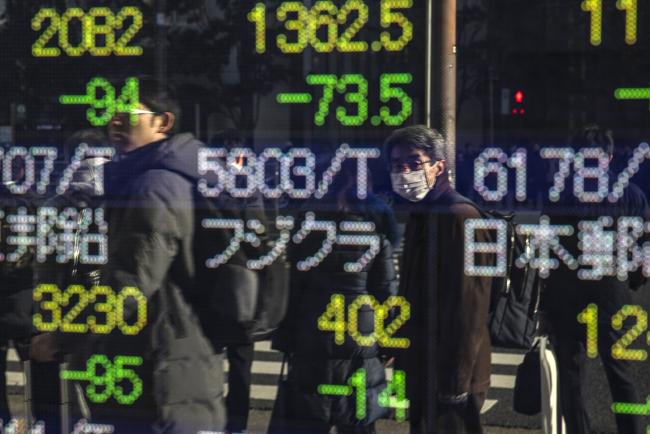(Bloomberg) -- Some Asia equity traders greeted U.S. stocks’ best rally since 2009 -- and subsequent strong gains in Japanese shares -- with conviction that this is more a turning point than a dead cat bounce.
As Japan’s Topix index and Nikkei 225 Stock Average jumped more than 3 percent on Thursday, following an almost 5 percent advance in the S&P 500 Index, they pointed to economic conditions in the U.S., which they say don’t justify the December equities rout. Any doubts about the health of the American economy were called into question during the Asian night when Amazon.com Inc (NASDAQ:AMZN). surged 9.5 percent after reporting record holiday sales.
“The recovery should put to rest the feverish fear-mongering that had investors believing the investment world as we know it was coming to an end,” said Stephen Innes, head of Asia Pacific trading at Oanda Corp. “The fear mongering and doom-and-gloom prophecies were not based on current U.S. economic fundamentals,” he said. “There’s a lot of money parked on the sidelines. So bargain hunters came back with a bang, but it’s a stark reminder never to underestimate the purchasing power of the U.S. consumer.”
While Asia-based traders were sleeping, some potentially positive news also emerged on the trade war front. A U.S. government delegation will travel to Beijing in the week of Jan. 7 to hold trade talks with Chinese officials, two people familiar with the matter said, in the first face-to-face discussion the two sides have held since President Donald Trump and China’s Xi Jinping agreed on a 90-day truce in Argentina this month.
Kiyoshi Ishigane, chief strategist at Mitsubishi UFJ Kokusai Asset Management Co. in Tokyo, says he’s watching those developments and Federal Reserve officials’ speeches for hints about any potential changes in monetary policy. But like Innes at Oanda, he’s taking a positive view on the rebound. “There will be ups and downs, but I think buying could persist for two to three weeks,” he said. “What happens with the U.S.-China trade issue will be something to keep an eye on.”
Here’s what other market participants are saying about the rally:
‘Irrational Market Moves’
“This spike demonstrates that much of the short-term market moves appear irrational,” said Jim McCafferty, the head of equity research for Asia ex-Japan at Nomura Holdings Inc. “The volatility of markets is inevitably caused by the prevalence of active-quant strategies. This gives an opportunity for the rational active investor who believes in company fundamentals.”
Short Squeeze?
“While I’m sure there was some long-only buying involved, given the severity of the move it definitely feels like more of a short squeeze,” said Andrew Jackson, head of Japanese equities at Soochow CSSD Capital Markets in Singapore. “It will take more than Donald Trump saying the market is oversold to make it rally like this.”
Earnings Concerns
“Stocks fell too much until now,” said Kazuyuki Terao, chief investment officer for the Japan arm of Allianz (DE:ALVG) Global Investors. “But the concern surrounding corporate earnings will linger quite a bit. I don’t think we’re entering a phase where stocks are set for a rebound track from here. There’s quite a bit of concern surrounding cyclical sectors like technology companies and machinery” for both the U.S. and Japan.
